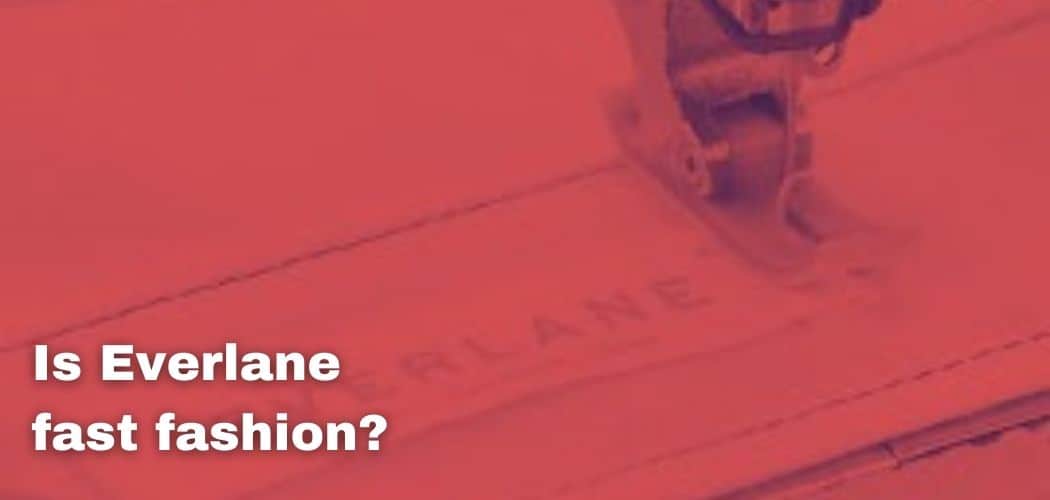Merriam-Webster defines the term Greenwashing as “an expression of environmentalist concerns, especially as a cover for products, policies, and activities”.
Greenwashing is the practice of creating a wrong illusion or presenting incorrect information about how a brand’s products are better for the environment.
Greenwashing is when a firm makes an unjustified claim to trick customers into thinking its products are ecologically friendly and sustainable.
Greenwashing is a pun on the term “whitewashing,” which is used to refer to making use of false information to hide wrongdoing.
Even though some of the green claims of these firms may be legitimate to some extent, greenwashing organizations commonly dramatize their claims or advantages in order to trick consumers.
Greenwashing didn’t become well-known until freshly when scores of self-declared sustainable fashion companies were found to be disguising their genuine operations.

Greenwashing is a profitable movement that aims to mislead people and generate profits through deception.
Greenwashing is accomplished by changing the name of, revising the branding, or repackaging products.
Thus, greenwashed commodities may give off the feeling of being more legitimate, healthful, or chemical-free when compared to a brand’s competitors.
The 2020 Transparency Report outlines 40 mainstream brands that have put up the greenwashing facade to fool consumers into purchasing products. Everlane is one of those 40 brands.
You can read the whole Transparency Report here: 2020 Remake: Transparency Report
Is Everlane as ethical as they say?
Everlane advertises itself as radically transparent, moral, and superior-quality, which are huge claims. However, Everlane is not as ethical as they say.
Everlane has achieved major material advancements, removing 90% of new plastic from its supply chain.
They have also pledged to change all of their cottons to organic certification by 2023, currently, 54% of their regular cotton has been changed to organic.
In order to comply with the Paris Agreement, they have adopted science-based targets to minimise their carbon emissions. They have not just goals, but also practical actions to achieve them.
Everlane also contributes a percentage of its Black Friday earnings to environmental causes.
Why do people hate Everlane?
Although Everlane has a varied range of models, their clothes isn’t the most size-inclusive. Most items are only available in sizes till XL.
Everlane has been the target of increasing criticism for their behaviour towards Black and other minority employees since June 2020.
Former employees have spoken up about unequal compensation, prejudice targeting darker-skinned Black models, and white management stealing ideas from Black employees.

They’ve also made recommendations for what Everlane should do to resolve these concerns.
They’re also ready to promote things that sound extremely environmentally friendly, like their denim and carbon-neutral footwear.
But, aside from these items, there isn’t much information regarding how environmentally friendly their products are.
Everlane’s labour union drama also demonstrates that the company isn’t upfront with its workers and is prepared to enact regulations that befit its bottom line at the risk of their employees’ source of income.
Previous employees’ discriminatory incidences, which have recently revealed, add to the company’s unscrupulous business practises.
Here’s a Youtube video you can watch which further clarifies this: Is Everlane actually Ethical + Sustainable?
Is Everlane a sustainable brand?
Everlane was among the first prominent sustainable fashion labels to hit the market.
For instance, the company acquired attention by sharing photos of its operations and factories, but additional examination of those images revealed that they were not worth a lot.
Nonetheless, while the images were attractive to the eye, they indicated little about the workers’ well-being.
Everlane’s denim production reuses 98% of its water, makes use of sustainable energy, and repurposes its waste.
Everlane’s plant is equipped with solar, and their denim jeans are air-dried. The washing section recycles its water. Their denim is made by Saitex, a Bluesign and Fair Trade accredited plant that is also a qualified B business.

Carbon-neutral sneakers produced from recyclable plastics and leather certified Gold by the Leather Working Group are available from the brand.
However it could be argued that truly ethical and sustainable businesses would not utilise animal products in the first place.
Everlane lists various certifications and describe what they represent on their sustainability page, but they don’t specify what percentage of items have such certificates.
As per Good On You, Everlane does not reduce textiles and water waste during the manufacturing process.
Their denim plant does this, however to be fair, Saitex also produces denim for major retailers who don’t claim to be completely sustainable.
Is Everlane ethical?
Everlane is tight-lipped regarding working conditions in its factories. Furthermore, the company is not taking any steps to reduce its carbon footprint.
Everlane has been in the news since early 2020 for breaking unions and restricting its American employees from discussing their pay with one another.
Allowing workers to form unions is a vital part of any sustainable brand.
The majority of Everlane’s products lack third-party fair labour and sustainable practises certifications, as well as any company-wide certifications.
This is critical because without third-party authentication, the company may make any claims you want and no one will be able to tell the difference.
While Everlane does seem to be making progress in terms of its sustainability and environmental aims and has increased its factory transparency at the same time, they still do not share information based on employee welfare.

To its credit, Everlane prioritises classic designs over passing fashions, stresses product quality and craftsmanship, and recognises the importance of brand transparency.
However, there are a few key areas where Everlane falls short of its own expectations.
Everlane’s promises of ‘radical transparency’ are undermined by its failure to verify the origins of most of its materials and refusal to share data on its environmental effect, auditing systems, and animal material source.
